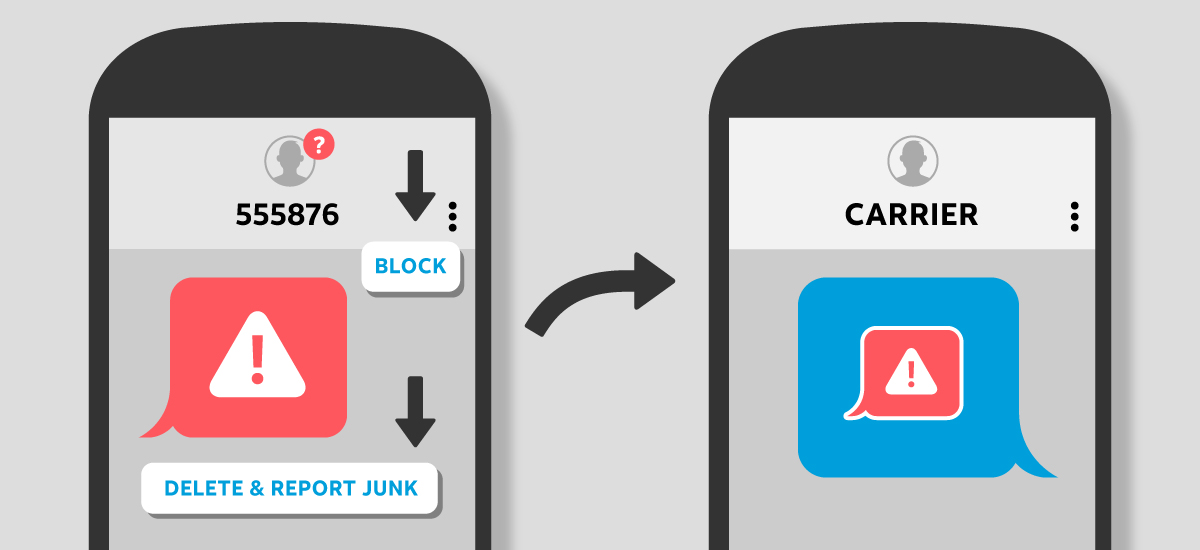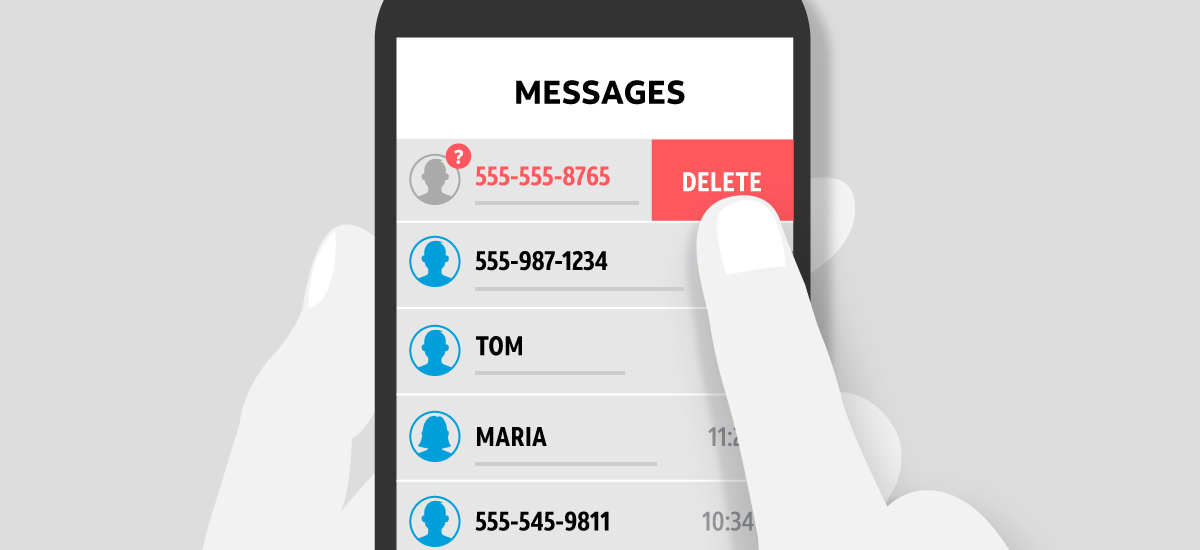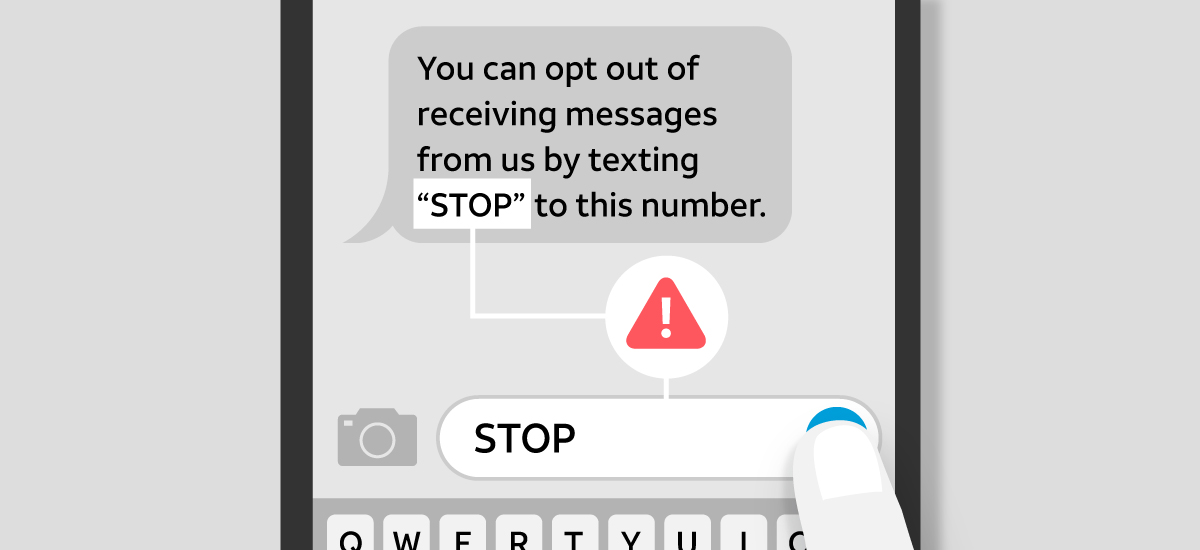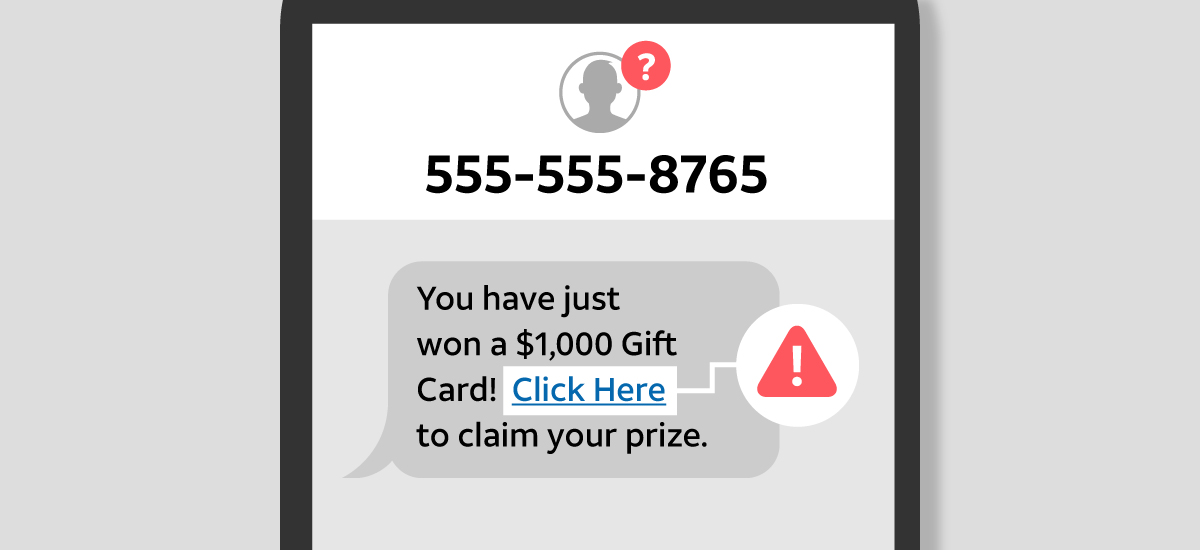AT&T and other carriers are taking action to stop illegal robocalls. So, it’s no surprise that bad guys are turning to a new strategy – robotexts.
The unwanted texts come in different forms. Some are spam messages that advertise products and services. Some say there’s a “problem with your account.” They ask you to confirm your payment source or account status by calling and entering information. Others lead you to fake websites. These messages can be more than annoying. They may put you, your personal information or your device at risk.
The text can open the door for bad guys to install malware on your phone or trick you into giving them personal information. If you want to know if the message is legitimate, call the entity supposedly sending it using a phone number found from a trusted source, such as their secure website or your bill. (Do not use a number or website provided by the possible scammer.)
So, what should you do if you receive an unwanted text message? Here are a few tips.
- Send us your spam and scam texts. Forward suspicious texts to us. Get step-by-step instruction to report unwanted text messages by following the link. Messages forwarded are free and will not count toward your text plan. The faster you share the message, the faster the company can place blocks in the network to stop suspicious SMS messages.

- Don’t reply to texts from someone you don’t know. Simply ignore or delete texts if you don’t know who they came from. Even if the text seems legitimate, avoid responding directly, and don’t hand out or confirm personal information. Remember, most companies, including AT&T, do NOT send text or email requests asking for personal or account information.

- Stop and think before you send “STOP.” Some legitimate companies and services allow consumers to opt-out of text messages by responding with the word “STOP.” However, some savvy text scammers use this to confirm your phone number is genuine as soon as you send “STOP.”

- Don’t click on any links in the message. Bad guys may include links to fake websites that imitate real companies. Those sites may ask for personal information or install malware on your device. Always go directly to a company’s secure website, not the link included in the text message.

- Avoid handing out your cellphone number. Learn more about protecting your phone number in this Cyber Aware blog.

Keep in mind that legitimate companies and organizations can send you text messages, as long as you’ve given them permission to do so. Political campaigns and groups can send text messages without your consent, but only if they do not use autodialing technology to send them.
To learn more about common text scams, visit this Cyber Aware resource on SMiShing.